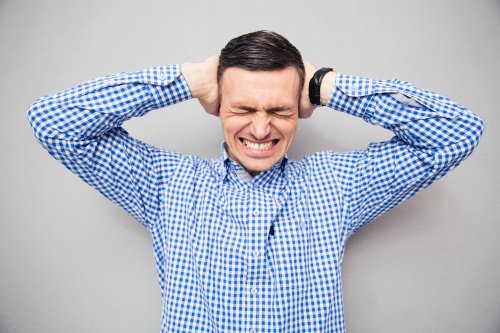
The medical term for the perception of sound that has no external source is called tinnitus. Sufferers of this condition often describe the sounds that they hear as a buzzing, hissing, chirping, whistling, or a ringing in the ears. This condition is caused by damage to the cochlear hair cells, and this damage can be temporary or permanent. The cochlear hair cells are located within the inner ear, and they contract and repeatedly stretch in response to vibrations that are sound-induced. The cochlear hair cells become overloaded when they become stimulated by a deafening noise and can be temporarily or permanently damaged. The noise can be from fireworks, guns, car stereos, or from listening to music loudly through ear buds. To help compensate for the damaged or dead hair cells, the neighboring regions of the inner ear have to work harder, and this is what leads to tinnitus.
While tinnitus had the notion that it’s a condition that only affects older people, that’s no longer the case. The numbers of tinnitus in the young is quite alarming. Due to frequenting noisy places such as nightclubs and rock concerts, as well as listening to music loudly for extended periods of time, teenagers are increasingly experiencing tinnitus. Nowadays, tinnitus is not just reserved for the aging; it affects our youth as well. There’s a high chance that these adolescents could suffer from hearing loss as young adults if they continue to expose themselves to high noise levels. While tinnitus is a common problem that affects approximately 36 million Americans, there are steps you can take to help lessen the severity of tinnitus.
- Turn the volume down on your electronic devices.
- Whenever possible, use ear protection to dampen sound when you are exposed to loud sounds.
- When ear protection is not available, move away from blaring sounds.
- Keep your ears clean. If you have excessive earwax buildup, see your doctor.
- Reduce or eliminate stimulants such as tobacco, tea, coffee and soda.
- Improve your circulation by exercising daily.
- Salt impairs blood flow, so make sure you watch your daily intake.
- See your doctor at least once a year for regular checkups.
- Certain medications can cause tinnitus. Check with your doctor about any possible drug substitutes.
- Make sure you are getting enough sleep every night.
- Limit or manage the stress that is in your life.
Don’t let tinnitus get you down. If you suffer from tinnitus and are looking for treatment, schedule an appointment with us today.